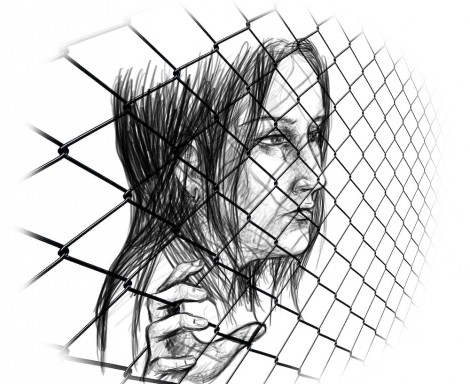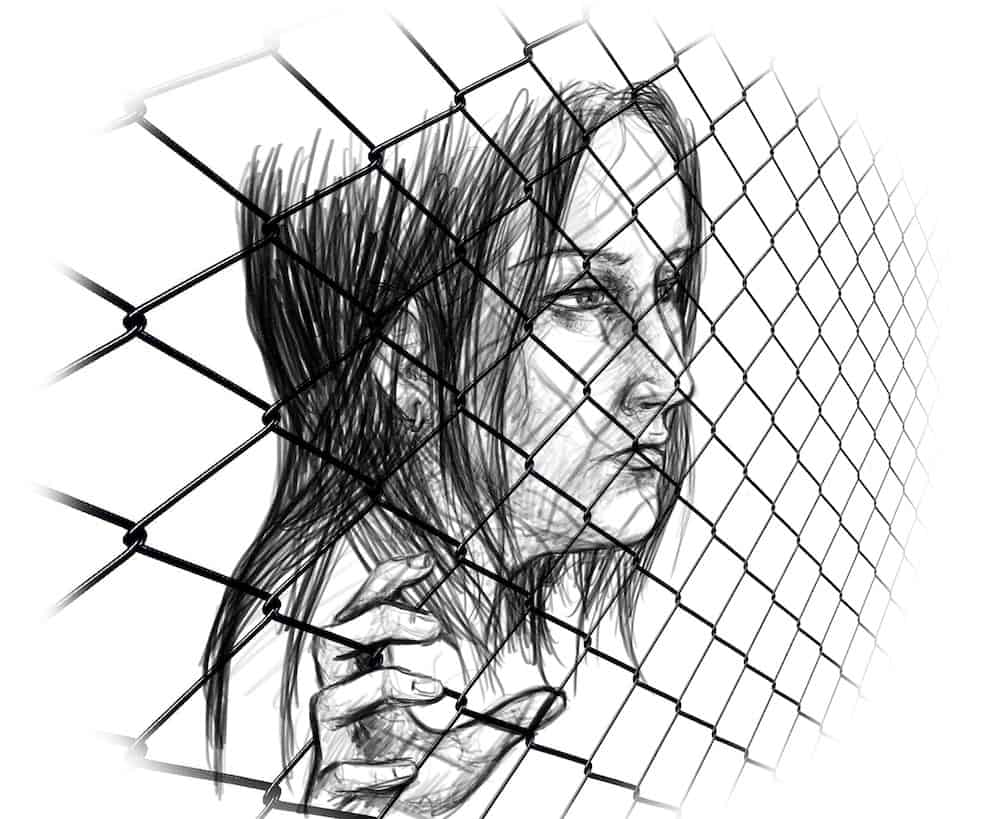In high school, I was never the cool girl. However, I was blessed, for a while, to have a steady group of friends who I met in elementary school. We all walked home from school together every day, until one day, when I was 15 I found that they had left without me. I had fallen in love with the leader of the pack, unbeknownst to him, and that was just not allowed. Their motivations are still a mystery to me, but from what I can infer, they did not want to deal with any potential drama that could arise. I had to be taught that there would be consequences for my actions, and consequences there were — two years and a turbulent relationship later, I found myself almost completely isolated.

WENDY GU/THE VARSITY
I saw others with loving friends and significant others, and thought that because I no longer had those things, there must be something wrong with me. My anxiety and depression, already present, but subdued, grew out of this period. At this point, I never became suicidal or had a serious desired to self-harm, but many people faced with similar situations do. However, I was young and I still had a vague sense of hope that things might get better for me in university.
I had no better luck there. I had difficulty fitting in socially. Eventually, I reconnected with my old high school friends, who offered me hollow apologies. Many claimed they didn’t know how I felt. I accepted their apologies because I was lonely, and we truly did enjoy each other’s company. I still cared about them, and I believe that people can change.
But it wasn’t long before a similar situation happened again, and I decided to cut my losses. Despite the decision being partially my own this time, the loss I felt was devastating — and now, four years later, the same old feelings came crashing down on me again. I was almost 21; this was no case of “typical high school bullying.” This was just my life.
I wondered if anyone would ever really love me, or if I was just doomed to repeat this disappointing cycle forever. I felt like there was a fence between me and the rest of the world, and like Ariel in The Little Mermaid, I wanted desperately to be part of that world. Over there, people had the friends and, more importantly, the love and acceptance that I so desperately desired.
At this point, I did become suicidal for a brief time. A lot of people think that if you suffer from depression, you must hate yourself, and for many people this is true. But by and large, I quite like myself. I think that I’m a great person and I am so angry at how the world has treated me that it makes me feel hopeless. Some days it takes everything I have just to get out of bed; other nights I can’t sleep at all. All of my life, having a solid social circle had been a primary goal of mine, but the constant disappointment was becoming exhausting. If I could not achieve my dreams or have love in my life, I could not see a good reason to live. I no longer had the idealistic hope that things would change.
So I stopped trying, or at least, I stopped trying with the same people who rejected me over and over again. Sometimes the only person that I had to talk to was my counsellor, who worked for free because I couldn’t afford to pay her. But despite a couple of close calls, I carried on, because I found something new to put my passion and energy into: helping others. I knew that I was not the only person who felt this way, and I wanted to help others feel less alone too. This led me to look into Active Minds, an organization that promotes mental health awareness at the student level. I am now the vice-president of U of T’s chapter, and planning our upcoming events gives me a reason to get up in the morning.
I want to include people, not exclude them, and help those who need a little bit of kindness in their days. My goal is to do that with Active Minds at U of T, and I strongly encourage anyone who struggles with mental health or just wants to learn more to get involved. On Wednesday, November 27 from 6:00 – 8:00 pm in UC140, we will be hosting an event called “Speak Out! Students Talk Mental Health” featuring speeches from students on their experiences with mental health. If you would like to attend, please contact [email protected].
Chelsea Ricchio is the vice-president of the U of T chapter of Active Minds, a group dedicated to raising awareness of mental health issues on campus.


